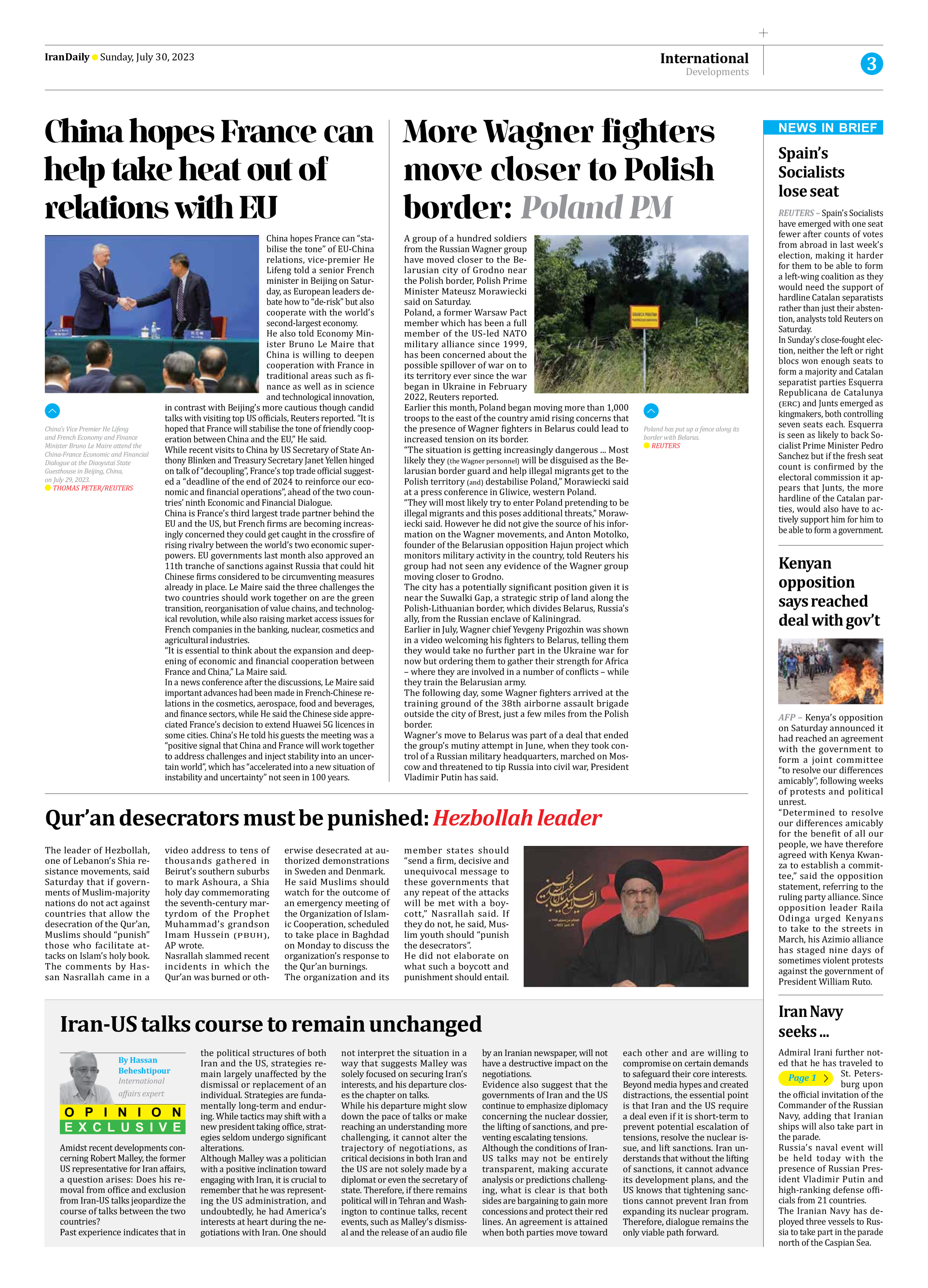
Iran-US talks course to remain unchanged
By Hassan Beheshtipour
International affairs expert
Amidst recent developments concerning Robert Malley, the former US representative for Iran affairs, a question arises: Does his removal from office and exclusion from Iran-US talks jeopardize the course of talks between the two countries?
Past experience indicates that in the political structures of both Iran and the US, strategies remain largely unaffected by the dismissal or replacement of an individual. Strategies are fundamentally long-term and enduring. While tactics may shift with a new president taking office, strategies seldom undergo significant alterations.
Although Malley was a politician with a positive inclination toward engaging with Iran, it is crucial to remember that he was representing the US administration, and undoubtedly, he had America’s interests at heart during the negotiations with Iran. One should not interpret the situation in a way that suggests Malley was solely focused on securing Iran’s interests, and his departure closes the chapter on talks.
While his departure might slow down the pace of talks or make reaching an understanding more challenging, it cannot alter the trajectory of negotiations, as critical decisions in both Iran and the US are not solely made by a diplomat or even the secretary of state. Therefore, if there remains political will in Tehran and Washington to continue talks, recent events, such as Malley’s dismissal and the release of an audio file by an Iranian newspaper, will not have a destructive impact on the negotiations.
Evidence also suggest that the governments of Iran and the US continue to emphasize diplomacy concerning the nuclear dossier, the lifting of sanctions, and preventing escalating tensions.
Although the conditions of Iran-US talks may not be entirely transparent, making accurate analysis or predictions challenging, what is clear is that both sides are bargaining to gain more concessions and protect their red lines. An agreement is attained when both parties move toward each other and are willing to compromise on certain demands to safeguard their core interests.
Beyond media hypes and created distractions, the essential point is that Iran and the US require a deal even if it is short-term to prevent potential escalation of tensions, resolve the nuclear issue, and lift sanctions. Iran understands that without the lifting of sanctions, it cannot advance its development plans, and the US knows that tightening sanctions cannot prevent Iran from expanding its nuclear program. Therefore, dialogue remains the only viable path forward.







